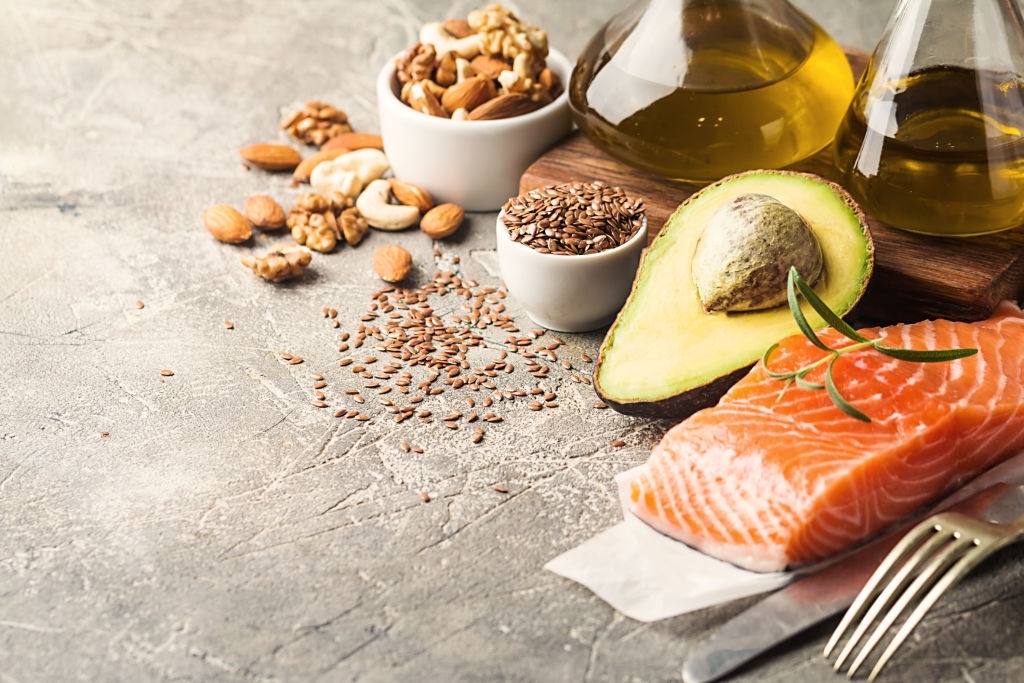During the COVID-19 Pandemic Outbreak, People are taking the necessary precautionary measures such as the use of masks, social distance, minimal personal interactions, etc.
Although these measures are being followed up, it is quite important that one has good immunity to combat the new infection of the Coronavirus and other diseases.
Our survival depends on the immune system. Without this, our bodies would be responsive to parasites, viruses, bacteria, and more attacks.
It tends to keep us healthy when we encounter numerous pathogenic.
It spreads all over the body and includes numerous types of cells, organs, tissues, and proteins.
It is particularly capable of distinguishing our tissue from foreign tissue. It recognizes and cleanses dead and faulty cells as well.
Each component of your immune system must work precisely as planned, to best protect your body from harm.
The most ideal way to make it happen is to rehearse the Good-For-You actions each day.
Here are some key ones
Have an adequate sleep

Sleep and immunity are closely related to each other.
Actually, insufficient or poor sleep is connected with a higher risk of illness.
If your immune system doesn’t get enough sleep, it might not do things well, and may not protect you from dangerous invaders and make you sicker.
In a study conducted in 164 healthy adults, Individuals who slept less than 6 hours a night were at a higher risk of getting cold than those who slept 6 or higher each night.
Proper rest can make your immune system strong..
In addition, when you are feeling sick, you can sleep more to better fight the disease in your immune system
In sleep, proteins called cytokines are released from the immune system. Many cytokines need to be increased if we are sick, having inflammation, or under stress.
The production of these protective cytokines may be reduced by lack of sleep.
Additionally, antigens and cells that fight infection are reduced when we don’t have enough sleep during times.
Adults are normally recommended to sleep 7 or more hours each night, while teenagers and children need 8-10 hours of sleep and new born babies should sleep up to 14 hours.
Try to limit your screen time one hour before bed if you are having trouble sleeping because the blue light emitted by your telephone, TV, and computer could disturb your circadian rhythm or Wake-sleep cycle of your body.
Avoid or Limit Added Sugar

When we consume a high dose of sugar than we temporarily lose the ability of our immune system to meet challenges.
The effect remains several hours long. Therefore, it can be a definite disadvantage of eating sweets several times a day.
Additionally, intake of sugar can lead to excessive inflammation, which is not useful but fosters aging and disease.
Research has shown that added sugars and refined glucose can make a contribution to overweight and obesity. The risk of obesity can however increase your sickness.
Chronic conditions such as respiratory problems, Cardiovascular diseases, and diabetes may impact your immune system and increase your risk to become infected.
If people with type 2 diabetes, for example, do not manage blood sugar properly, a chronic low-level inflammatory response can result, as reported in the Current Diabetes Reviews in October 2019.
One of the studies shows that reducing your intake of sugar can reduce inflammation and help you lose weight, thus reducing your risk of developing chronic health disorders such as Type 2 and heart disease.
Since your immune system can be weaken by obesity, type 2 diabetes, and heart disease, limiting your added sugar is a vital part of an immune-boosting diet.
Now you have been known how bad sugar is for health.
You should try to limit the amount of sugar in your daily calories to less than 5%. For somebody on a 2,000-calorie diet, that is around 2 tablespoons (25 grams) Sugar.
Exercise In Moderation

One pillar of healthy living is daily exercise. Exercise can lead to a healthier immune system, just as a healthy and balanced diet.
It can help encourage a better circulatory system which enables cells and substances to move around freely and efficiently through the body.
According to the April 2018 Frontiers in Immunology Review, the regular practice reduces the risk of chronic diseases (such as obesity, type 2, and heart disease), viral and bacterial infections.
Although long, tedious, and intense workouts can repress your immune system, and make you more sensitive to disease and infection within hours of workouts. While modest practice can boost your immune system.
Research shows that a single moderate exercise session can improve the efficacy of vaccines in those with impaired immune systems.
Moreover, regular, moderate exercises can help reduce inflammation and recover frequently your immune cells.
At the very least, try to comply with the Center for Disease Control and Prevention (CDC) guidelines of physical activity.
People Should aim to get moderate exercise (brisk walking, jogging, steady bicycling and swimming) at least 150 minutes a week.
Don’t Smoke Cigarettes

Stopping smoking is always a good idea but the recent epidemic of COVID-19 brings an even greater sense of urgency.
COVID-19 is a pulmonary disease. Respiratory failure or significant lung damage is common for those who become seriously ill or die.
According to an oncotarget November 2016 review, the chemicals that tobacco smoke releases— carbon monoxide, nicotine, nitrogen oxides, and cadmium— can cause problems to the function and growth of immune cells.
Smoking affects the immune system and decreases lung disease’s effectiveness in the body.
Smoking also aggravates bacterial and viral infections (especially in the lungs as pneumonia, flu, and tuberculosis), post-operative infections, and rheumatoid arthritis (an auto-immune disease that affects the joints in the immune system), as mentioned in the CDC.
However, there are many ways that lung health will improve within days or weeks after smoking is stopped, according to the Centers for Disease Control and Prevention.
According to the Centers for Disease Control and Prevention, If you are addicted at present, there are plenty of services to help you get over your smoking habit, including counseling, nicotine replacements, non-nicotine prescription drugs, and behavioral therapy.
Keep Stress under Control

Stress relief and anxiety are crucial to immune health.
The corticosteroid stress hormone can prevent the immune system from being effective. Thus, the ability of the immune system to counter antigens is whittled down when we are stressed.
Therefore, we become more vulnerable to infections.
Stress may also affect the immune system indirectly, since an individual may use unhealthy behavioral copes to reduce stress, for example, consumption of alcohol and smoking.
Short-term immune system suppression is not harmful. Chronic suppression however affects the body and makes it susceptible to illness and inflammation.
According to study, Long-term stress causes inflammation and deficiencies in the role of the immune cells.
There are several successful strategies for stress reduction; the trick is to figure out what works for you. You can do Meditation, workout, journaling, yoga, and anything you like (for instance, fishing, golf, drawing).
You can also take advantage of seeing a certified therapist or counselor.
Start doing at least one activity every day to lower stress. Don’t have enough time? Take a small step. Put aside five minutes for entertainment and increase it if possible, at some point every day.
Eat Healthy Diet to boost Immune System

The nutrients you get from your foods, particularly foods made from plants such as fruits, vegetables, crops, and spices, are crucial to the proper functioning of your immune system.
“Antiviral and antimicrobial properties of several plant-based feeds also help us fight against infection,” says Dr. Lin.
According to a review published in the International Molecular Sciences Journal in June 2017, spices such as Clove, Oregano, Thyme, Cinnamon and Cumin contain antiviral and antimicrobial properties preventing the growth of food-spill bacteria as well as harmful fungi and antibiotic Resistant.
Moreover, the nutrients your immune system requires, according to the academy of nutrition and dietetics, are the zinc, folate, iron, selenium, copper, and vitamins A, C, E, B6, and B12, that you receive from the food that you eat.
In terms of immune function each plays a specific role.
According to Study, Antioxidants in plant foods help in lowering inflammation by battling unstable compounds known as free radicals that can lead to inflammation in your body at high rates.
The chronic inflammation is associated with conditions of health such as heart disease, Alzheimer’s disease as well as other cancers.
We tend to have a strong and diverse nutritional profile by eating all different colors of plant-based food.
In reality, whole foods, plant-based food diet, contain 64 times more immunity-enhancing antioxidants than a meal-and milk-including diet.
Concentrate on adding more vegetables and plant-based foods when dealing with a diet that promotes good immune health.
Add soups, smoothies, and salads to fruits and veggies or eat as snacks, says Lin.
Eat more healthy fats

Healthy fats, such as discovered in extra virgin olive oil and oily sea fish such as mackerel and salmon, can improve the immune response of your body to pathogens by reducing inflammation.
Since our immune system can be weakened by chronic inflammation, these fats can naturally fight disease.
Seek those items marked with a cold-pressure for the healthiest oils.
According to the study, the high anti-inflammatory olive oil is associated with a lower risk of chronic disorders, such as heart disease and type 2 diabetes.
In addition to Olive Oil, peanut oil, canola oil, and foods rich in omega-3s also contain highly anti-inflammatory properties
Another study indicates that anti-inflammatory properties of olive oil can help the body resist harmful bacteria and viruses that lead to disease.
Omega-3 fatty acids like salmon and Chia seeds are also anti-inflammatory.
Stay hydrated

Water has many vital roles in your body and supporting your immune system is one of them.
A liquid in your bloodstream called lymph carries essential immune cells that battle infection across your body is made up mostly of water.
Dehydration slows the lymphatic flow and leads to compromised immune systems often.
According to research, Dehydration can lead to headaches that mess with your performance, concentration, mood, digestion, and function of your heart and kidney. These abnormalities will increase your risk of disease
Even if you don’t exercise or sweat, your breath as well as your urine and bowel movements always cause you to lose water.
You should drink plenty of water every day to make your urine light yellow to stay hydrated.
Water is advisable as it is free from calories, additives and sucrose.
Although tea and juice can keep you hydrated, because of their high sugar content you should limit intake of fruit juice and sweetened tea.
You must drink when you are thirsty and stop when you are not thirsty anymore as a general guideline.
Women are required to drink 11.5 cups a day (2.7L), and men are to drink 15.5 cups (3.7L) of water a day, according to the Mayo Clinic.
Whether you exercise intensively, work outdoors or stay in a warm environment, you will definitely need more fluids.
It is important to keep in mind that older people continue to lose their ability to drink water because their bodies don’t signalize thirst desire sufficiently.
They must regularly drink water even they they don’t feel thirsty.
To help in strengthening the immune system, make sure you substitute water for water you lose.
Take Vitamins and Essential Minerals

Several experts agree that the use of a daily multivitamin could indeed help you to meet your minimum daily requirement for certain nutrients at least.
Vitamins essential to immune function includes vitamins A , C, D and E.
According to Study, over recent years, vitamins A and D have been given special attention because they have shown a significant and important effect on the immune response.
The minerals which the immune system needs to function properly best are calcium, Selenium, and Magnesium.
Such minerals also play an important role in the proper functioning of several enzyme reactions within the body.
Without the basic building blocks, the immune system and the body may not function at best.
Drink Alcohol in Moderation

High alcohol intake is related to various adverse health effects, including compromised immune function.
Kaplan says that after drinking excessive levels of alcohol, the body tries to detoxify the system to mess with the normal functioning of the immune system.
High levels of alcohol consumption can undermine your body’s ability to fight against infection and slow down your recovery time, according to a study published in the 2015 journal Alcohol Research.
Don’t begin if you don’t drink already.
Restrict your alcohol intake to one drink (equivalent to a 4-ounce glass of wine) per day if you are a woman and two drinks a day if you are a male, as the NIH recommends.
Final Words
For our survival, our immune system is vital.
How well our immune system protects us from germs, viruses, and chronic diseases, is affected by our daily habits.
Substituting poor health habits with healthy habits will help improve health.
To strengthen your immune system, you can make a number of lifestyles and dietary changes from today. Balanced diets, staying hydrated, adequate sleep, are some you can start from



